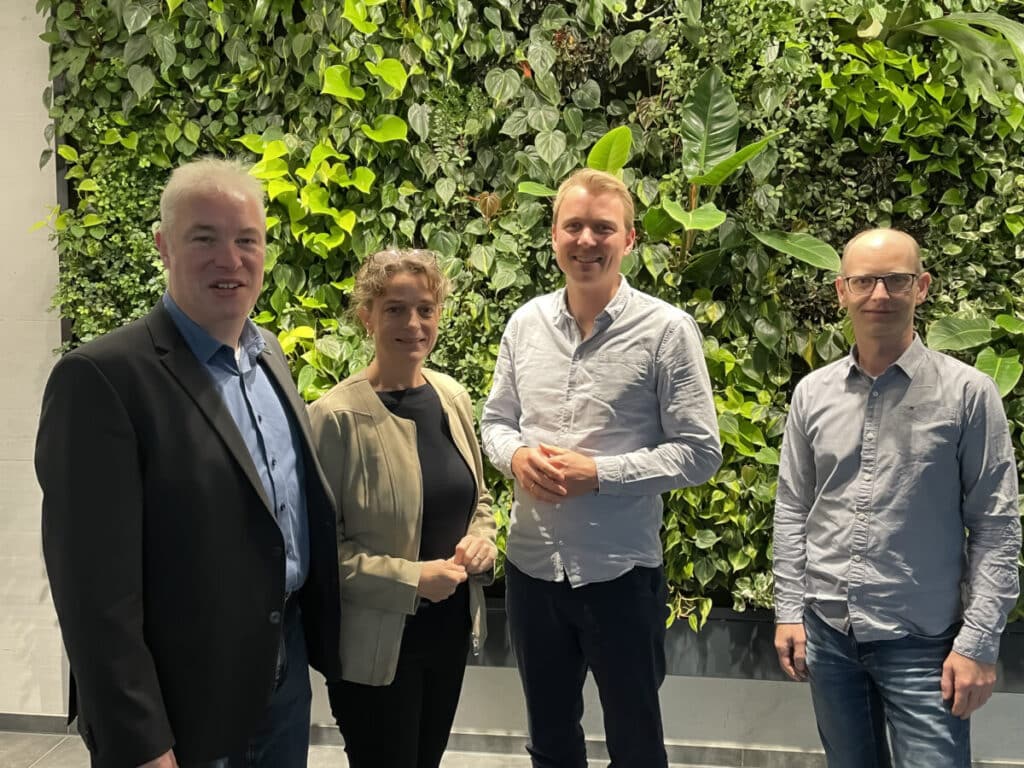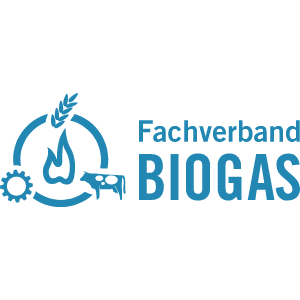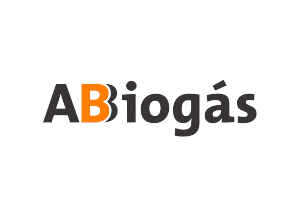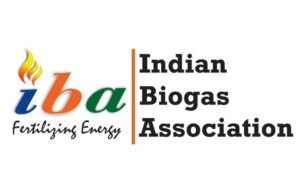
Gescher, 27.11.2023 – Alliance 90/The Greens MP Dr Anne-Monika Spallek, member of the Food and Agriculture Committee, and Dr Jan-Niclas Gesenhues, the parliamentary group’s environmental policy spokesperson, met with the PlanET Biogas Group on Thursday for an open exchange to gain a personal insight into the challenges and potential of the biogas industry.
Hendrik Becker, shareholder of the PlanET Biogas Group, and Marco Schwering, head of the authorisation department, were delighted with the MPs’ willingness to find out more about the complex issues involved.
The discussion began with a comprehensive presentation of the PlanET Biogas Group and its diverse business areas, which focus on agriculture, the food industry and waste utilisation in the German market. Particular attention was paid to the diverse utilisation paths of biogas, with the current challenges on the German market being highlighted. Hendrik Becker denounced the standstills in the industry, which are due to complex legislation, bureaucratic hurdles, changes in subsidy policy and increasing authorisation costs. This is forcing more and more biogas companies to shift their activities to foreign markets.
Particular attention was paid to the “tank-top” debate and the development of feedstocks for biogas production. Becker emphasised that both PlanET and the industry have not built any new plants in Germany with the predominant use of renewable raw materials since 2014. Today, the focus is on agricultural residues such as slurry & manure. Early biogas plants that actually used maize are also increasingly switching over.
Marco Schwering also emphasised that the trend in the construction of new biogas plants over the last 10 years has shifted towards pure slurry and manure plants – at the same time, the proportion of maize in existing plants is also declining. This shows that the regulatory mechanisms are taking effect and that the biogas industry is facing up to the requirements and implementing them. Farmers and operators are increasingly tending to diversify their substrate sources in order to improve the sustainability and profitability of biogas plants. There has also been significant progress in research and technology in recent years, leading to more efficient methods of biogas production.
On the other hand, the framework conditions were set so high by the last federal governments, be it through the EEG itself or through further legal regulations in the authorisation law, that an abrupt market collapse was the result. In particular, poorer subsidy conditions, a high level of bureaucracy and a lack of legal certainty in many details have ensured that the market in Germany has not recovered to this day. Concerns were expressed about the lack of coordination between different ministries and laws, which led to more blockades than constructive cooperation.
PlanET’s foreign markets, such as Denmark, France and North America, show how things can be done differently.
At the end, a strong appeal was made to the members of parliament to take decisive measures in the federal government to strengthen the bioenergy sector and pave the way for a sustainable future. PlanET now hopes that the MPs will take a differentiated picture of the biogas sector and a positive mood back to Berlin.
Picture description:
Persons from left to right: (Hendrik Becker, Partner PlanET Biogas Group, Dr Anne-Monika Spallek, Member of Parliament Bündnis 90/Die Grünen, Dr Jan-Niclas Gesenhues, Member of Parliament Bündnis 90/Die Grünen, Marco Schwering, Head of Approval Department PlanET Biogastechnik)
Press contact:
Katharina Schmitz-Altrogge
Head of Marketing
PlanET Biogastechnik GmbH
k.schmitz@planet-biogas.com planet-biogas.com



